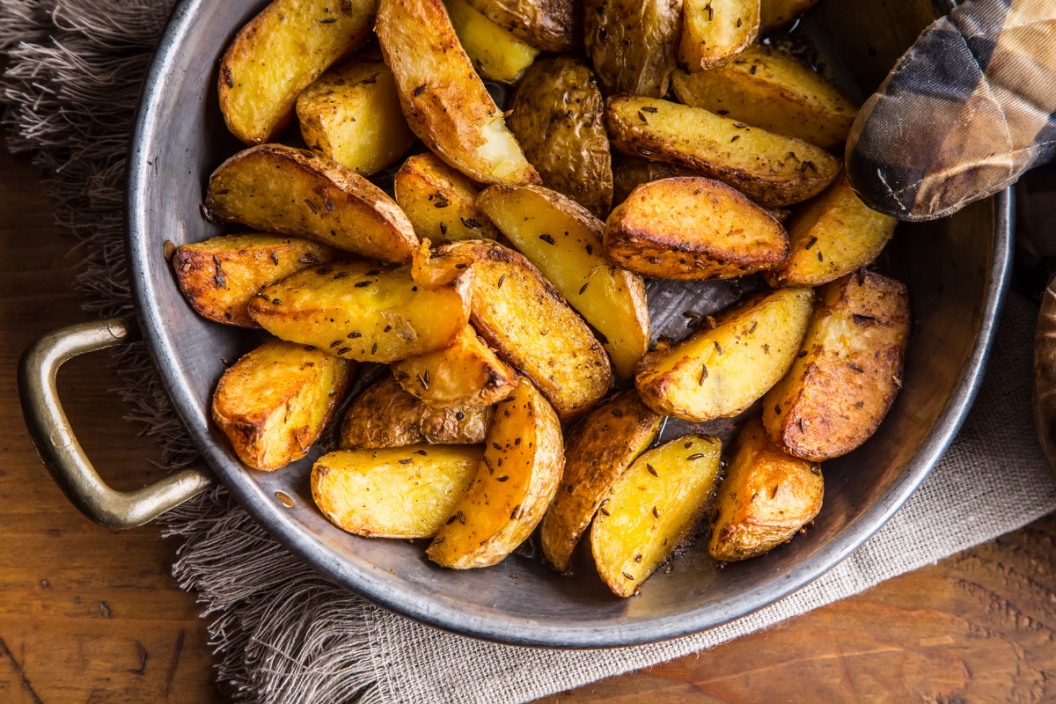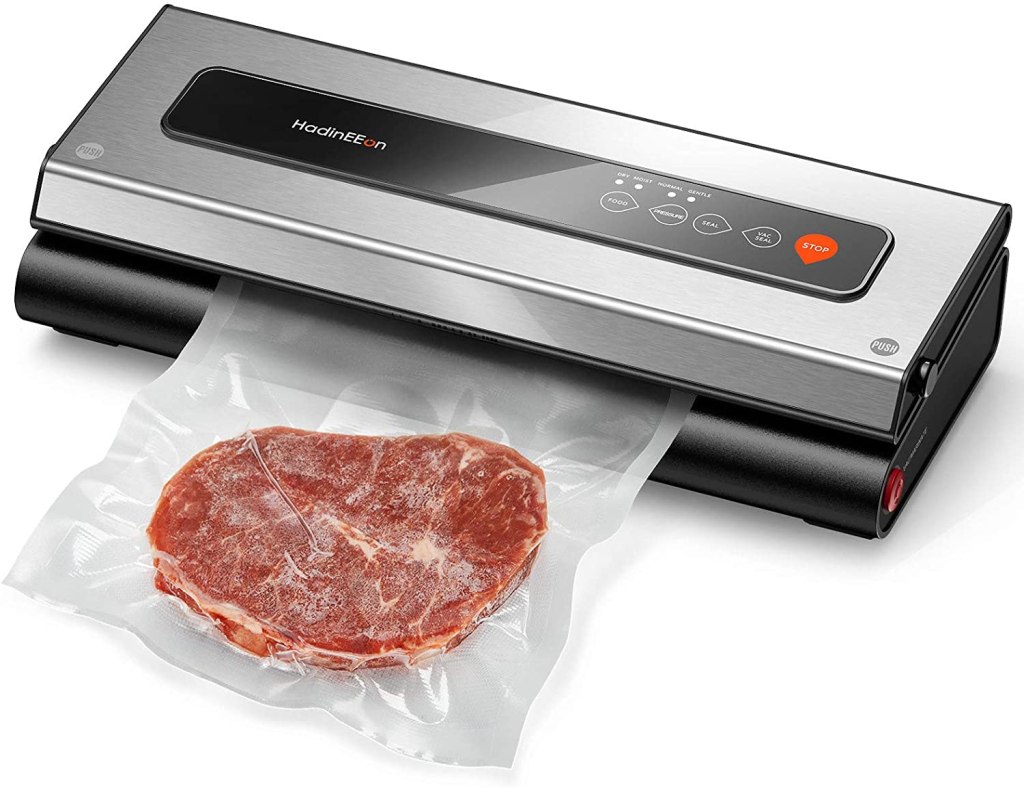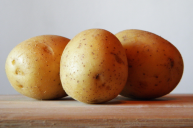Potatoes are a dependable and versatile option, great for casseroles, soups or baked on their own. However, the most cost-effective way to buy them is in bulk, in a large 5-pound bag. This is great to have a never-ending supply of potatoes, but it doesn't work so well if you forget about them or never have time to cook them. When you have pounds of potatoes and no time to use them, what do you do? Do you have to throw them out, wasting food and money, or can you freeze potatoes?
Can You Freeze Potatoes?
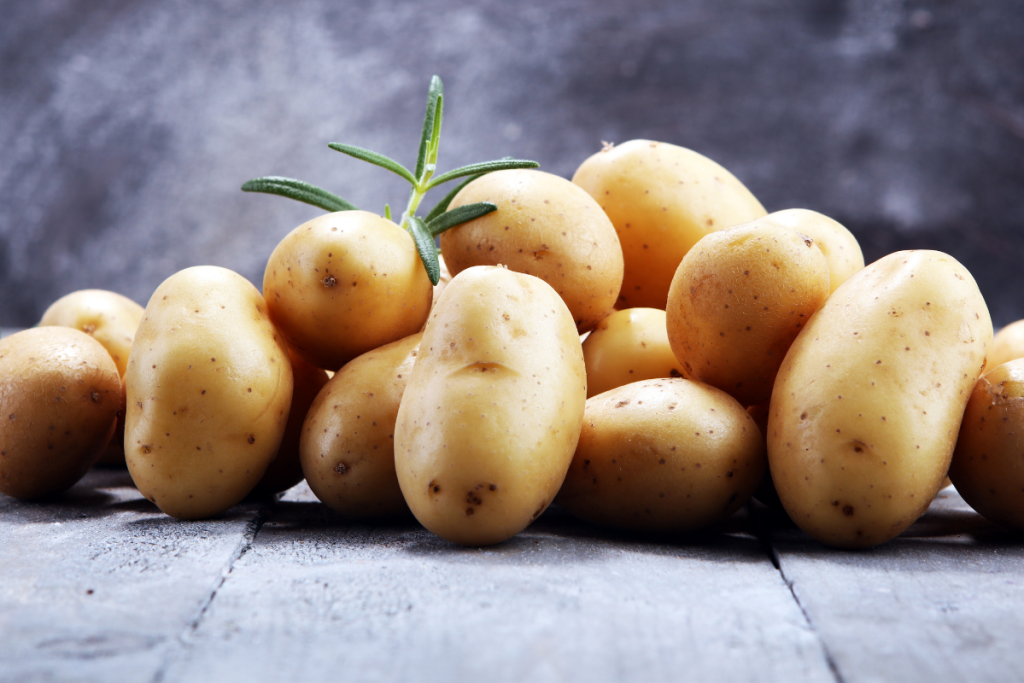
Both white potatoes and sweet potatoes have an incredibly long shelf life, lasting for weeks at room temperature and up to a month or more if kept in a cool, dark area with lots of ventilation. However, even with a long shelf life, they can go bad before you have time to use them. Freezing potatoes is a great option if you find yourself with more spuds than you can eat!
You can freeze any potatoes, but it's good to think about what you plan on eventually making with them. Waxier varieties like Yukon gold or russet potatoes often work best for mashed potatoes, while starchy ones like red potatoes work best for roasted potatoes. The only thing to stay away from when freezing potatoes is freezing an entire potato. If you freeze a whole potato and then try to make a baked potato, it probably won't cook evenly and might be frozen in the middle.
How to Prepare Potatoes for Freezing
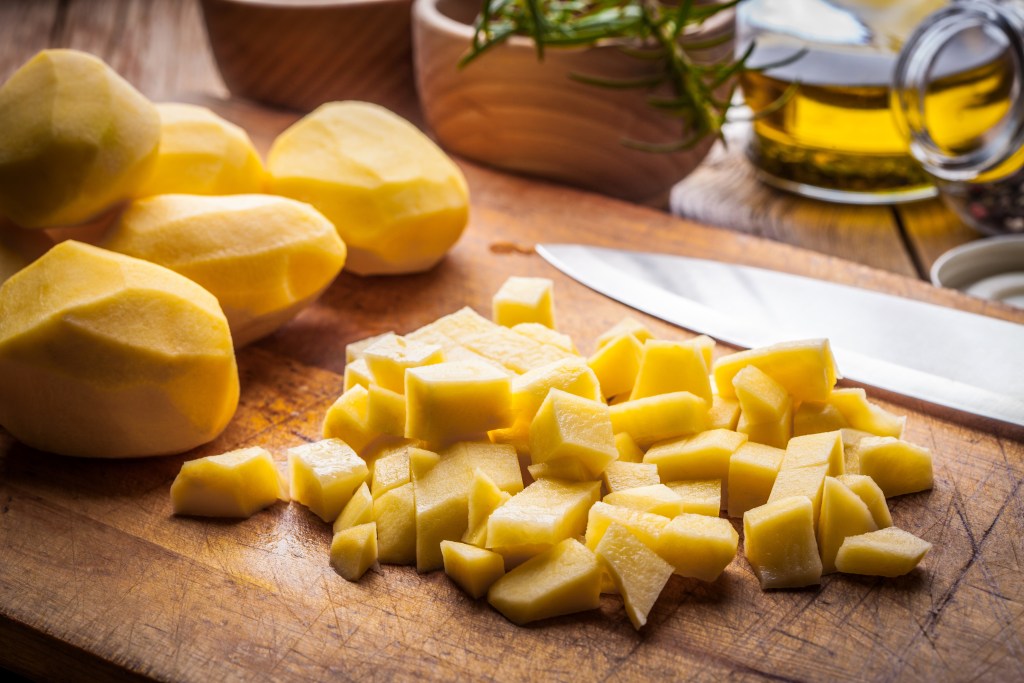
You can freeze potatoes, but only if you cook them a bit first. Start by chopping your potatoes into the shape and size you plan to use them in. You can peel them or not, depending on whether you want skin on when you eventually use them. Chop them into wedges, fries, or even hashbrowns.
Then, steam your potatoes in a large pot of water on the stovetop until they are soft but not tender enough to eat. You can also blanch them in boiling water; either method works. The cooking time will depend on the size of your cut potatoes. The idea when freezing potatoes is to have them mostly cooked but not all the way done. That way, when you eventually use them you'll cook them the rest of the way to the level of crispiness you prefer.
After blanching or steaming them until slightly tender, drain them and immediately put the potatoes into a large bowl of ice water, since cold water stops the cooking process. Leave them in the ice bath for a few minutes, and then drain the ice water and transfer the potatoes to a parchment paper lined baking sheet or a couple paper towels to cool.
Once your potatoes have cooled, place them on a baking sheet in a single layer. There should be space between each potato, because if touching they'll freeze together. If necessary, you can use multiple baking sheets to allow for this. Make sure you have room in your freezer before starting this process, since baking sheets can take up a lot of room.
Freeze Those Spuds!
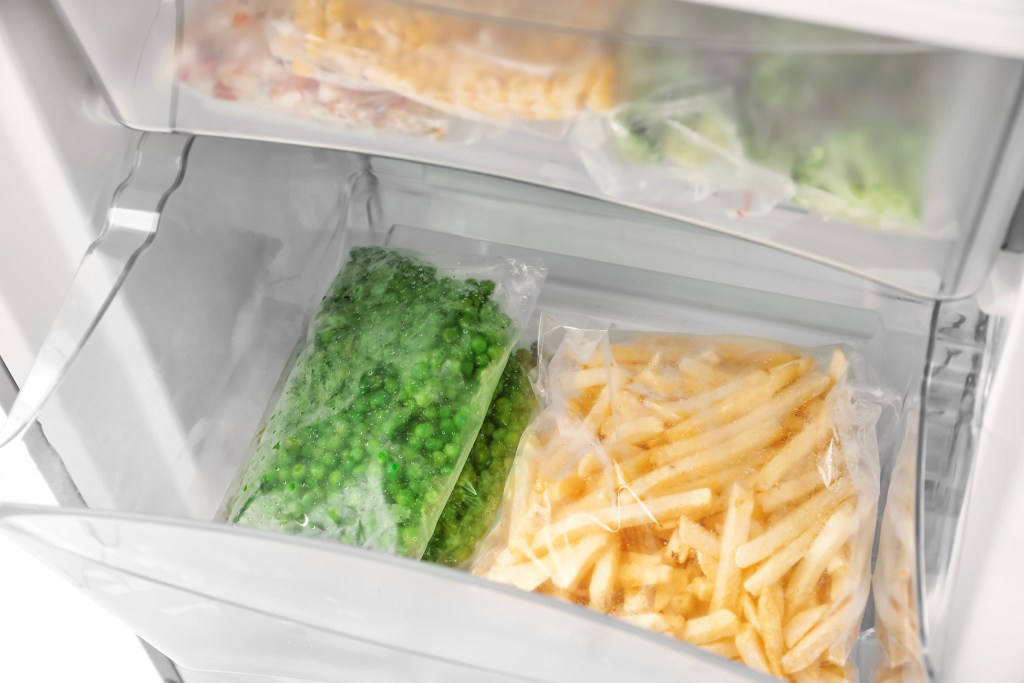
Now they're ready for the freezer! Freeze the potatoes until totally solid, about 6-12 hours. Then, you'll transfer your frozen potatoes to a freezer bag or an airtight, freezer-safe container. They can then be stored in the freezer for up to 3 months.
Having potatoes in your freezer is convenient for brunches or last-minute meal ideas. There are an endless number of potato-themed delicious side dishes, from mashed potatoes to potato salad. The best part is, when you decide to use your frozen potatoes, thawing them is an easy process. You don't need to defrost or reheat them; you can basically follow the potato recipe as if you had raw potatoes.
HadinEEon Vacuum Sealer Machine
Simply cook your frozen potatoes until they are as crispy or soft as you like! If you're making mashed potatoes, you'll place the frozen potatoes in a pot of boiling water until soft, and then you'll mash them. For French fries or roasted potatoes, you'll place the diced potatoes right onto a baking pan or skillet and cook in olive oil until perfection!
